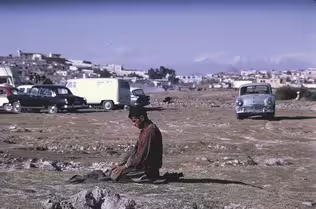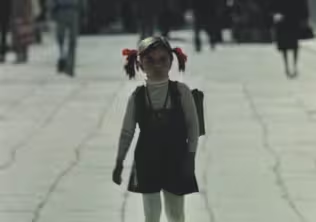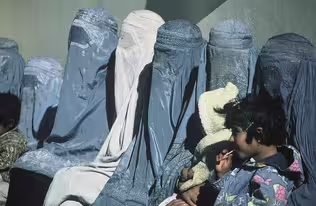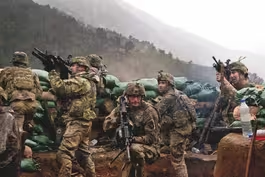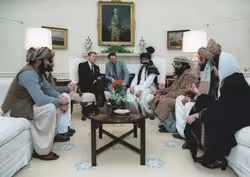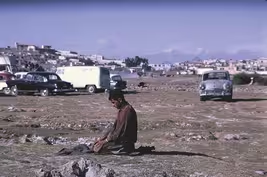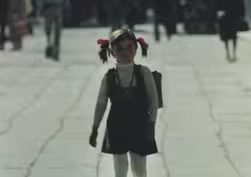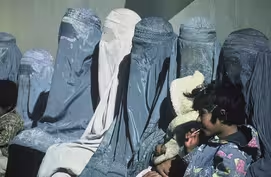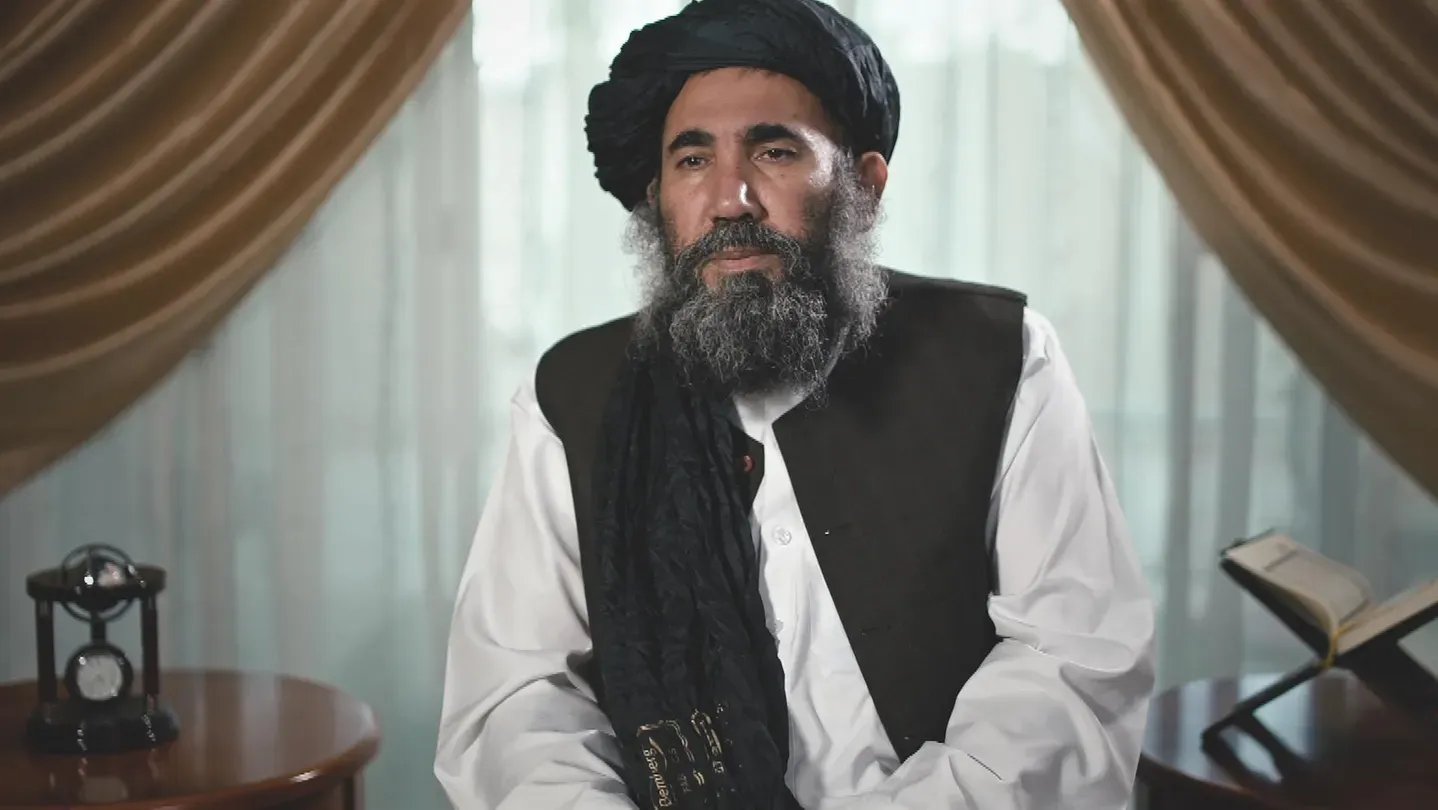

Afghanistan: The Wounded Land - Part 3: Taliban
Season 5 Episode 3 | 54m 5sVideo has Closed Captions
While fighting in Afghanistan turned into a civil war, the Taliban emerged triumphantly.
Although the Soviet occupation in Afghanistan was over, ethnic groups and Mujahideen factions kept fighting. And so, the country entered into a ruthless Civil War. With Pakistan's support and the blessing of the clergy, the Taliban emerged and triumphed, turning Afghanistan into a lab for a new type of Islamic state and the training ground for Osama bin Laden's terrorist network.
Problems playing video? | Closed Captioning Feedback
Problems playing video? | Closed Captioning Feedback
Funding provided by the Corporation for Public Broadcasting. Additional funding provided by the John D. and Catherine T. MacArthur Foundation and the Wyncote Foundation.

Afghanistan: The Wounded Land - Part 3: Taliban
Season 5 Episode 3 | 54m 5sVideo has Closed Captions
Although the Soviet occupation in Afghanistan was over, ethnic groups and Mujahideen factions kept fighting. And so, the country entered into a ruthless Civil War. With Pakistan's support and the blessing of the clergy, the Taliban emerged and triumphed, turning Afghanistan into a lab for a new type of Islamic state and the training ground for Osama bin Laden's terrorist network.
Problems playing video? | Closed Captioning Feedback
How to Watch Doc World
Doc World is available to stream on pbs.org and the free PBS App, available on iPhone, Apple TV, Android TV, Android smartphones, Amazon Fire TV, Amazon Fire Tablet, Roku, Samsung Smart TV, and Vizio.
Providing Support for PBS.org
Learn Moreabout PBS online sponsorshipMore from This Collection
Afghanistan: The Wounded Land - Part 4: Trap
Video has Closed Captions
After 9/11, the U.S. invaded Afghanistan. Many Afghans hoped for peace and democracy. (54m 27s)
Afghanistan: The Wounded Land - Part 2: Jihad
Video has Closed Captions
In 1979, the Soviets invaded Afghanistan. "Soviet Vietnam" began after a call for Jihad. (53m 23s)
Afghanistan: The Wounded Land - Part 1: Kingdom
Video has Closed Captions
Afghanistan opened to the world in the 1960s. When communists seized power, a war began. (54m 4s)
Providing Support for PBS.org
Learn Moreabout PBS online sponsorshipANNOUNCER: The following program contains material that may be disturbing.
Viewer discretion is advised.
A civil war in Afghanistan raged on between the mujahideen leaders and various ethnic groups.
NADIA GHULAM (speaking Spanish): ANNOUNCER: The Taliban emerge from the chaos, a new regime promising to bring peace.
GHULAM: ANNOUNCER: "Afghanistan: The Wounded Land-- Taliban," on DocWorld.
♪ ♪ MASOOD KHALILI: The day that the Soviets withdrew from Afghanistan, that was a very, very special day for every Afghan, including me.
Because we waited so long for the enemy to leave us alone.
Here while going, one thing which struck me was that they were happy.
It means the soldiers also didn't want to stay in Afghanistan and leave the country and stop killing or being killed.
But soon, we were just again locked, blocked.
Besieged by a war.
Very nasty war.
♪ (whistle blows) NARRATOR: For ten years, the Afghans lived under occupation.
More than 600,000 soldiers were deployed by the Soviet Union to control the country.
GHULAM (speaking Spanish): (screeching) NARRATOR: The Soviet troops entered Afghanistan in 1979 to support the communist government against an Islamic guerrilla.
(firing) (speaking Dari): NARRATOR: Kabul remained relatively safe, but in the provinces, the war was brutal.
Thousands were arrested and tortured by the communists.
Villages were destroyed.
One million people died, many more left the country.
With the Soviet withdrawal, the people of Afghanistan hoped for peace at last.
SHUKRIA BARAKZAI: When the last Soviet soldiers was withdrawing, and when they, when they crossed the border, we feel so free.
It was, like, "Breathe back, and this is the country back."
♪ At this time, I was university student.
I was in the age of 19.
That was a kind of impression we had that, "Okay, this is the chapter closed, "and the new chapter will start, but the good one.
"The one that the people of Afghanistan will, "will be the one, and they will again enjoy their life, before Soviet."
NARRATOR: The Soviet army was gone.
But in Kabul, there was still a communist government.
The president, Dr. Najibullah, saw this moment as a unique opportunity for the nation to reach peace.
He set out to promote reconciliation between the Afghans who had fought on both sides, those who supported the government and the Islamic guerrilla, the mujahideen.
(man speaking Afghan language) HEELA NAJIBULLAH: After my father became the president, the idea was to have reconciliation.
And the word, the term was very new for me.
♪ He never came home with his political ideology and sort of indoctrinated us.
I would ask him, for example: what is this supposed to mean?
What reconciliation is all about.
That was his vision: we could go ahead and have a peaceful country; we could find a way out of this clash of jihad and communism.
This difference between the traditional and, and progressive views.
How to bring women on board.
How to integrate the commanders and their soldiers.
So come and sit with me and we will work it together.
(Mohammad Najibullah speaking Afghan language) HEELA NAJIBULLAH: My father had said that history will prove one day that I stood for, for a right cause.
What the people of Afghanistan need is more sympathy and economic assistance.
Not more bombs and guns.
♪ NARRATOR: The mujahideen had defeated the fearsome Soviet army.
Now they wanted to install an Islamic republic.
They wanted power.
In 1992, mujahideen commanders like Massoud prepared their men for the last step: the takeover of Kabul.
We were all waiting for reaching Kabul one day.
♪ In our dreams, in our talks, in our memories, in our desires, all fighters: "What is your goal?"
"Kabul."
"What do you want from God?"
"Kabul."
"What do you dream of?"
"Kabul."
NARRATOR: After the collapse of the Soviet Union in 1991, Moscow cut all support to the Afghan government.
The new Russian leadership was not afraid of a mujahideen takeover in Kabul.
KHALILI: President Najib wanted to talk to us.
We did not talk-- we said, "No.
"You go, we will be in Kabul.
Otherwise, we push you out."
It was April '92.
We are very close, about maybe five kilometer from Kabul.
Commander Massoud decided this is the best time to go.
NARRATOR: Massoud, the so-called Lion of Panjshir, had become an icon of the Afghan guerrilla.
Despite the Western press praising him as the Afghan Che Guevara, he was only one of many mujahideen commanders.
And all of them wanted to be the first to take Kabul.
(reporter and Massoud speaking French): ♪ KHALILI: Kind of chaos, you know?
Huge thing watching, "Oh, my goodness, is this a resurrection day?"
Clothes dirty, beards are up to belly button.
And all dust on your face, but a smile on your lips.
♪ ♪ NARRATOR: At the end of April 1992, Kabul was in the hands of the mujahideen.
The era of communist Afghanistan was over.
ABDULLAH ANAS: The people knew that they are the mujahideens.
The, you cannot imagine, 80% of the society, the citizens of Kabul, came to welcome these people.
It was wedding in the level of a city.
Everywhere happiness.
(guns firing) (sirens blaring, people cheering) BARAKZAI: I remember when first time I saw a mujahideen.
It was a nightmare.
A man with a very long hair.
On end of his hair, he had these bullets.
And very dirty clothes, dirty hands with the long nails.
And instead of one Kalashnikov, he had four on his... Two on one side and two on the other side.
I never seen someone like that.
It was like a nightmare.
(whispering): Which kind of human is this?
♪ GHULAM (speaking Spanish): HEELA NAJIBULLAH: When my father decided that we had to leave, I didn't even know that I was leaving.
Because, when we left for holidays was the, was when I met my father last.
I said bye, and I got in the car, and then he looked at me and he goes, "You didn't give me a hug!"
And then he said, "Just make sure that you learn English very well, because you need to come back and help me with it."
So, I said, "Okay."
And, and that was it.
So then I didn't meet him.
REPORTER: There have been conflicting reports from Afghanistan today about the whereabouts of President Najibullah.
Last night, several hundred troops who recently defected from the government took control of Kabul airport and were reported to have prevented Dr. Najibullah from leaving the capital.
It's now thought he's taken refuge at a United Nations office in Kabul and has resigned from all his posts in government.
HEELA NAJIBULLAH: He was stopped at a checkpoint.
And one of the soldiers that were there tell him, "Look, you know, um, I think there is, um, there is a plan to get rid of you."
So, then my father goes to the U.N., and that was it.
The, the uncertainty of not knowing what's gonna to happen tomorrow started from there on.
♪ REPORTER: Later that day, a BBC reporter bumped into what remained of the Afghan government.
The foreign minister and government spokesman, Mr. Wakil, made his last official media statement.
REPORTER: After today, this government is finished.
- Finished, yes.
REPORTER: And what will you be doing now?
- Now we are going to prepare the ceremony of delivering of the power, yes?
ANAS: The aeroplanes, tanks, ministries, the palace, radio, TV of the Afghan government.
Oh, what kind of victory!
This is all ours now!
We are the new rulers now.
This is ours!
♪ This is the office of Najibullah, the president of Kabul.
Where is he?
He is in the, in the U.N.!
Refugee.
♪ NARRATOR: But the celebration was short-lived.
Once in Kabul, mujahideen commanders began wrestling for power.
Even as Massoud's troops entered the capital, the southern part of the city was occupied by another faction.
Its leader had founded the first Islamic party in Afghanistan, and he wanted to be the next president-- Hekmatyar.
HEKMATYAR (in Afghan language): ♪ REPORTER: The Hezb-i-Islami leader Hekmatyar had rejected various plans for transitional governments and carried out his threat to invade Kabul.
(shouting in Afghan language) This may be the critical moment of events so far.
As we understand it, these men here... - ...Hekmatyar!
- ...men of Hekmatyar, have taken over the presidential palace.
(speaking Afghan language) (cheering) ♪ NARRATOR: Different mujahideen commanders agreed to form a temporary government.
Massoud was appointed minister of defense.
But Hekmatyar rejected the agreement.
KHALILI: Press conference in the Foreign Ministry.
Commander said, "The war is not yet over.
We are under the rockets of the rivals."
(weapons firing) (explosion echoes) ♪ (explosion echoes) (fires) (explosion echoes) BARAKZAI: They attack extra rockets during civil war.
Start from Hekmatyar and then Massoud.
They both were fighting.
(fires) NARRATOR: Hekmatyar belonged to the largest Afghan ethnic group, the Pashtun, which ruled over Afghanistan for centuries.
Massoud belonged to the Tajik minority.
In this multiethnic country, rivalries among different groups added fuel to the fire.
Kabul became a battleground.
Its inhabitants were left at the mercy of the fighters.
GHULAM (speaking Spanish): (guns firing in distance) (fires) (people speaking Afghan language) GHULAM: ♪ (children coughing, fussing) MAN (in French): KHALILI: He asked me, "Commander, where are our friends, "those who helped us during the war against Soviets?
"NATO forces?
"NATO leaders?
"America, Germany, France, "Italy, Spain?
Where are they?"
"I don't know."
♪ REPORTER (in French): (speaking Dari) (translated into French): ♪ MILTON BEARDEN: Afghanistan was always considered about as far away from everything as you could get.
And so, if they've already started fighting in Afghanistan, part of the belief in the State Department was, "You can't fight your way in to help them."
So, we walked away.
And I came back to Washington to brief the president.
But this time, it was H.W.
Bush.
We were in the Oval Office, and Gates said, you know, "Remember, Milt was in Afghanistan."
And President Bush said, "Afghanistan-- is that thing still going on?"
And I thought, "Yeah, it's still going on."
(guns firing) NARRATOR: The vacuum left in Afghanistan by the Cold War superpowers was filled by neighboring countries.
For instance, Hekmatyar was helped by Pakistan, while Massoud received aid from India, among others.
Nobody wanted Kabul to fall into enemy hands.
(gun fires) (explosion echoes, men shouting) Why there is fights?
Why?
REPORTER: Why there is... Why... (inaudible) in Afghanistan?
- In Afghanistan?
I don t know why... (inaudible) between commanders.
We are soldiers.
(weapon fires) (guns firing) (firing) ♪ (kids talking and crying in background) GHULAM (speaking Spanish): (baby crying in distance) ♪ (speaking Dari): (people talking in background) NARRATOR: The city was besieged.
MAN (on megaphone, in Dari): NARRATOR: Very quickly, the population began to starve.
(talking loudly in Afghan language) MAN (speaking Dari): ♪ Most of the time, I really wish to delete from my memory part of my life which is really and extremely unpleasant.
♪ I was pregnant on my first kids.
Whenever was the sounds of rockets or bullets, I, I try to put my hands like that.
That's, like... (whispering): "I'm here, I will save you, "don't worry, don't worry!
Everything will be all right."
(plane screeching) The plane was not, like, one or two.
'Cause it was, like, sound and then dum, sound and then dum.
So for a pregnant woman, this kind of distractions and this kind of fear immediately will give a big risk.
I tried to survive myself and my child till hospital-- if I call it hospital.
(laughs) But... And I delivered them.
And they were healthy.
They were, they were breathing and they were, like, crying.
Very tiny and little.
And the nurse was, put some marks on my hand, and after a couple of minutes, she came, and she put another thing.
And I was just asking, "Where is my kids?"
My husband just come and cry and say, "They're gone."
♪ I will never forgive them.
Never.
And I think the history will judge them.
But I as a individual, I will never.
Because they destroy our dream.
Not only country, the hope we had, the love we had with them, the feeling, the understanding.
A hero, you know?
A proper hero that you are waiting to, "Oh, I have to see.
"I have to, I have to, I have to meet them!
"They should come.
And they will give us a release from the, from the pain we had."
But, suddenly, it was a bad trauma.
♪ GHULAM (speaking Spanish): NARRATOR: Thousands died in the civil war.
Kabul was devastated.
Massoud and Hekmatyar were accused of war crimes, but to this day no warlord has claimed responsibility or stood trial for crimes against civilians.
This lack of justice is one of the reasons why the wounds of Afghanistan have remained open for so long.
What we could indeed do, Commander Massoud and me and us, during the war to stop it, I can't say that we were 100% right, you know?
No one is absolutely right.
We are human being, we are selfish sometime.
We are just thinking different, we become angry, and when you are angry, you lose your wisdom.
♪ (speaking Afghan language): NARRATOR: All factions received aid from abroad, but Pakistan was particularly eager to influence Afghan politics.
With an enduring conflict against India, and hosting millions of Afghans on its soil, Pakistan needed an allied government in Kabul.
In 1994, the war was stalled when a new movement appeared-- the students of Islam, the Taliban.
(talking in background) NARRATOR: It all started when clerics from Kandahar met and decided to restore order.
The Taliban grew fast, and Pakistan decided to support them.
AGHA JAN MOTASIM (speaking Afghan language): NARRATOR: According to legend, their first action was to capture a rapist and hang him.
The Taliban chose as leader a man of faith who had fought against the Soviets, Mullah Omar.
REPORTER: Because this was regarded as a key moment for the Afghan nation, Mullah Omar displayed the holy cloak of the Prophet Mohammed to the crowd; it's kept in Kandahar, and is shown only at times of crisis.
The last time was 60 years ago.
People in the crowd threw up their turbans to touch the cloak and be blessed by it.
It was like being at some great religious ceremony in the Middle Ages.
BARAKZAI: They are saying and preaching, they will come and they will bring justice.
So, basically, that was a beautiful slogan.
That was a beautiful words.
And this is how the people was, like, thirsty.
We, we've been badly thirsty having justice.
(engine starts) NARRATOR: Promising order and peace, the Taliban won the support of a war-wary population.
But the decisive key to their rise came from Pakistan.
Thousands of boys who had grown up in refugee camps were trained, armed, and sent to Afghanistan to join the fight.
KHALILI: My first meeting with first Talib was in Pakistan.
And they said they're determined to fight to the end to reach to Kabul and liberate people of Afghanistan from the hands of the people like us.
Thinking that the Taliban one day will capture Kabul, that, to be honest, I could not believe it.
♪ I asked, "Who gives you money, weapon, training?"
He said, "God."
NARRATOR: With the help of Pakistan and the sympathy of the people, the Taliban became unstoppable and set out to take Kabul.
TAYSIR ALONY (speaking Spanish): ♪ (speaking Afghan language) NARRATOR: The warlords were left with only two options, surrender or leave.
(speaking Afghan language) KHALILI: I received a call.
Commander Massoud is on the phone.
"Taliban entered, and they are now in Kabul."
"Really?"
"Yes."
"You left Kabul?
Got defeated?"
Whatever you call it.
NARRATOR: Massoud went back to the mountains, where he once fought the Soviets.
Other commanders had to escape abroad.
(speaking Afghan language): NARRATOR: In Kabul remained the last communist president, Dr. Najibullah.
For the past four years, the mujahideen had held him hostage in a U.N. compound.
We invited an Irish gentleman who was in charge of his security in the U.N. for dinner because he had letters from my father.
He had a very positive sort of, um, overview of the situation, saying there will be a change, that there will be an end to, to the mujahideen era.
And I remember asking this gentleman, "So that does mean that he will be out?"
He said, "Yes, we hope that your father will be out very soon."
♪ BARAKZAI: People were suffered from civil war.
Badly.
When Taliban came, amazing that they was been welcomed by Afghans.
♪ (speaking Spanish): (cheering) NARRATOR: In only two years' time, the Taliban managed to take Kabul.
Now they were the rulers of Afghanistan.
REPORTER: The Afghan capital, Kabul, is controlled by Taliban.
Overnight, they dragged the former president, Sa'id Mohammad Najibullah, from a United Nations compound.
He was beaten, shot, and his body hung from a lamppost.
BARAKZAI: Their action was really against the message.
They say they will bring justice, but the former president was been killed without justice, without court.
♪ NARRATOR: In a short time period, the Taliban changed the face of Kabul completely.
TV, music, and other forms of entertainment were banned.
Even kite-flying, a popular game in this country, was forbidden.
REPORTER: They impose their own ferocious brand of fundamentalism, hanging television sets in the streets as a warning to sinners, cutting the heads off graven images.
GHULAM (speaking Spanish): NARRATOR: Most of the new laws targeted women.
For them, Afghanistan turned into a prison.
GHULAM: GIRL (speaking Dari): (man yelling, women crying out) NARRATOR: Those who broke the laws were severely punished.
- (shouting) - (yelping) When Taliban beat me on the street... ...it was...
It was very difficult.
I had a proper burka.
I hide my beautiful hands with nails, nail polish, that they shouldn't see it.
(talking in background) BARAKZAI: They beat me and they say, why I am on the street without male member of my family, without my mahram?
Um, I'm not saying I was very problematic, but I love to answer them.
I say, "I try to find someone from secondhand market, but I couldn't."
And that was, they start beating me extra.
In the middle of the street, in front of probably 400 eyes?
Or 500?
For no reason.
And immediately after that punishment, it was like a wake-up call-- wake up!
Wake up!
I woke up.
I start my underground schoolteacher.
I bring the girls, and I told them, "Look, girls, this is not whom you are."
When I was in your age, I was a good basketballer, I was a good volleyballer, and I was listening to the music, and I had good skill of writing.
And they were just looking to me like a very strange way, "How possible?
"Really?
"It's possible?
Did you wear skirts?"
"Yes!"
"You never cover your head?"
"Yes, it was normal."
♪ (speaking Spanish): (people talking in background) (car horn beeps) (people talking and calling in background) GHULAM: ♪ BOY: They are killing some people.
REPORTER: Why?
- Three people.
REPORTER: Are you going to watch it?
- What?
REPORTER: Are you going in to see it?
- No.
REPORTER: Why not?
- I, I come here to do football.
♪ (speaking Spanish): ♪ (man calling in background) MAN (speaking Dari, other man assenting): (speaking Spanish): ♪ (laughing) (sniffs) (speaking Dari): MAN (speaking Dari): NARRATOR: In 1996, Osama bin Laden had to look for a new shelter.
Sudan, where he lived, could no longer host him, as the Americans accused him of terrorism.
So bin Laden returned to Afghanistan, where he had fought in the 1980s.
He found a new host in the Taliban.
ALONY (speaking Spanish): (fires) NARRATOR: Bin Laden and the Taliban found a common enemy, Commander Massoud, who resisted in the Panjshir Valley, north of Kabul.
♪ REPORTER (in French): NARRATOR: After the massacres of the civil war, Massoud saw the fight against the Taliban and bin Laden as his redemption.
Sensing that bin Laden was a global danger, he went for the first time to Europe, hoping to win the support of Western leaders.
KHALILI: When he was in France, he was giving a message to America that Osama bin Laden and Al-Qaeda will be a real threat to all of you.
(speaking Afghan language) (translated): My message to President Bush is the following: if he isn't interested in peace in Afghanistan, if he doesn't help the Afghan people to arrive at their objective of peace, then the Americans, and the rest of the world, will have to face the problems.
ALONY (speaking Spanish): NARRATOR: The world did not listen to Massoud's warning.
He came back to Afghanistan empty-handed.
By September 2001, bin Laden was ready to attack America.
Early that same month, two men were sent to Panjshir.
They posed as journalists and asked to interview Commander Massoud.
KHALILI: Two boys came.
Two terrorists, I can say, from Al-Qaeda.
They were not journalists, they were pretending to be journalists.
They came with a camera, but the people were saying they are very much taking care of their camera, not giving to anyone.
They were called for the interview.
Me and Commander Massoud went to that room.
I was just beside him.
Around 15 questions.
I think nine or ten, eight or nine, were about Osama bin Laden.
"Why in France you talked against Osama bin Laden?
Why you don't believe in him?"
The minute...
Commander was here, the minute I wanted to whisper, "What is the situa..."-- in Persian... Boom!
He died.
He was killed in my lap.
♪ REPORTER (in French): KHALILI: I open my eyes.
My wife was there.
"Where are we?"
Said, "You are in Germany."
I said, "Come closer.
"Your husband is dying.
If I have ever shouted at you loudly, I'm sorry."
Then I called my son, "Come, come."
I, at that moment, repeated a poetry of my father to him.
I said, "Son, be objective.
"If you wear the uniform of my country "against terrorists, go!
Because mercy to the wolf is cruelty to the lamb."
But I survived.
And after two days, New York.
(explosion echoing) ♪ ♪ ♪ ♪
Afghanistan: The Wounded Land - Part 3: Taliban | Preview
Video has Closed Captions
Preview: S5 Ep3 | 30s | While fighting in Afghanistan turned into a civil war, the Taliban emerged triumphantly. (30s)
Afghanistan: The Wounded Land - Part 3: Taliban | Trailer
Video has Closed Captions
Preview: S5 Ep3 | 1m 43s | While fighting in Afghanistan turned into a civil war, the Taliban emerged triumphantly. (1m 43s)
Providing Support for PBS.org
Learn Moreabout PBS online sponsorshipSupport for PBS provided by:
Funding provided by the Corporation for Public Broadcasting. Additional funding provided by the John D. and Catherine T. MacArthur Foundation and the Wyncote Foundation.
